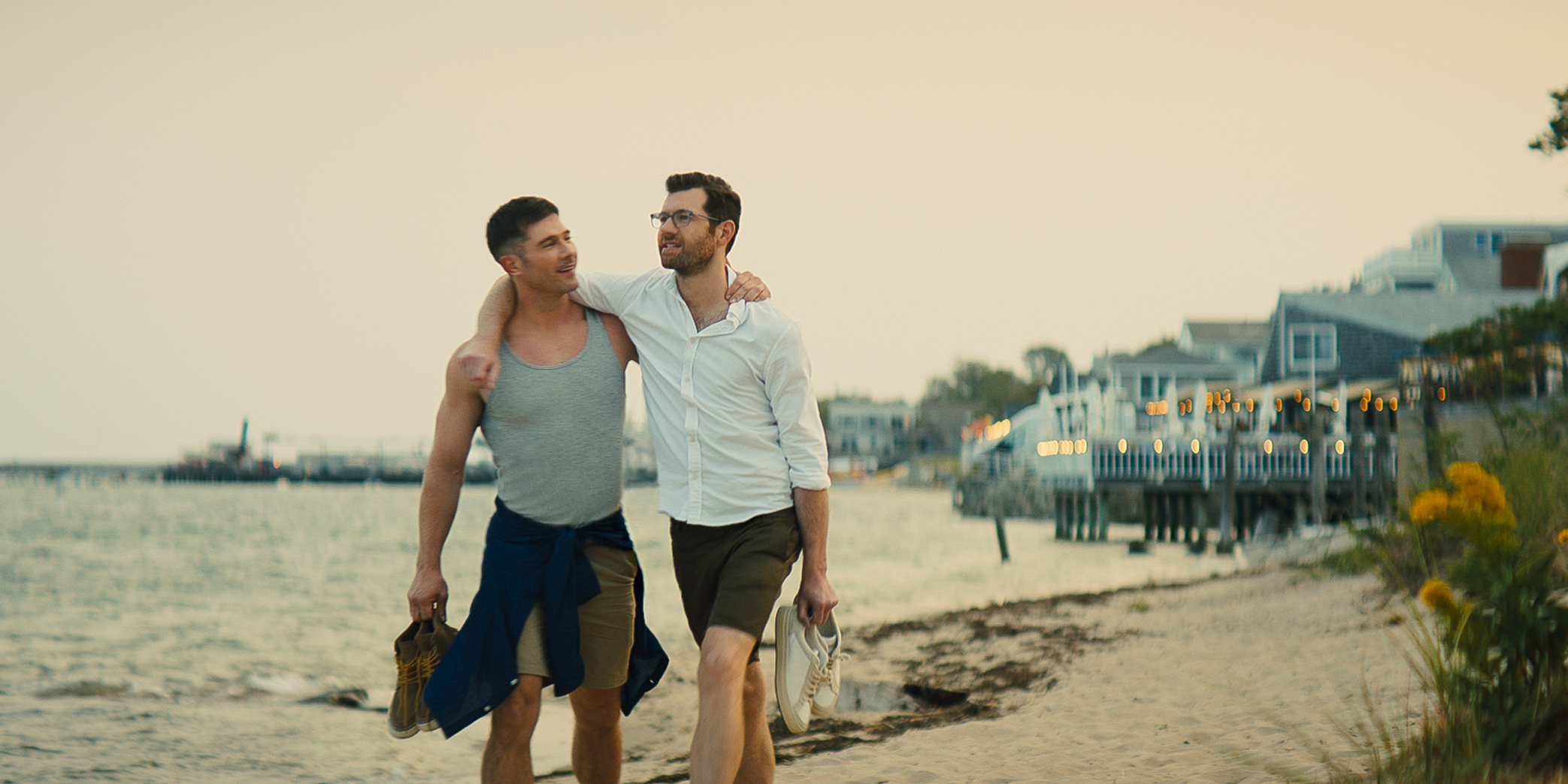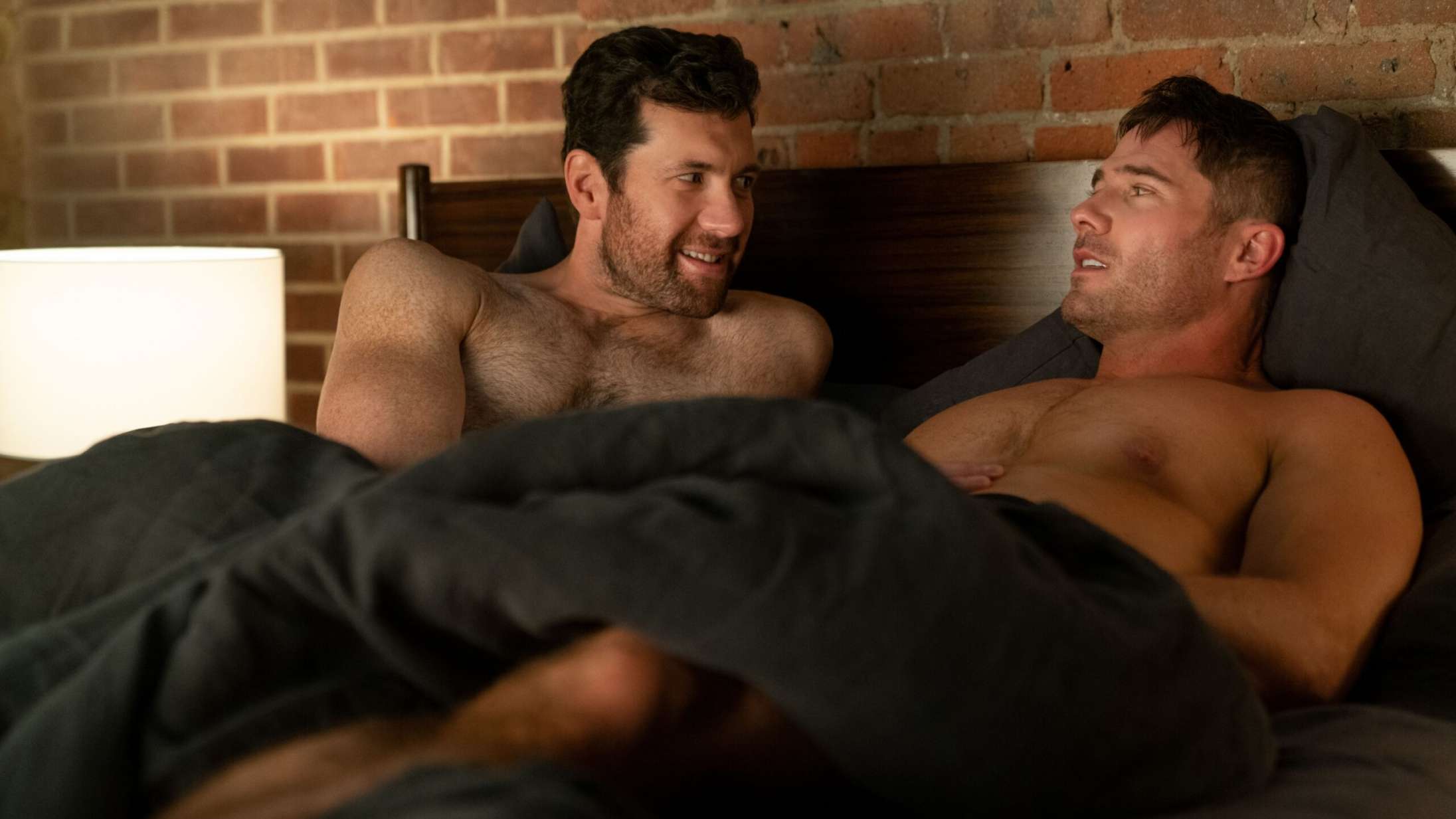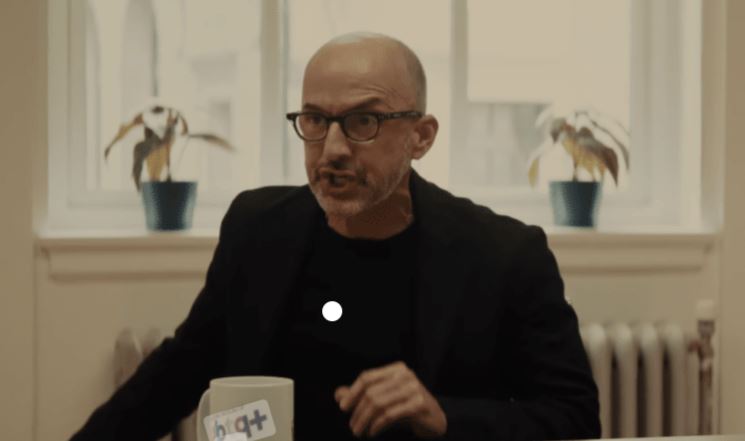Bros has the weight of gay history on its shoulders, so it’s rather amazing that it’s so light on its feet. Ideally, a gay romcom released in 2022 shouldn’t have to bear the responsibility of representing all the gay men and women who have gone unrepresented in the past, but if that’s your takeaway from Bros, you might be doing it wrong.
This star vehicle for comedian Billy Eichner, who co-wrote the film with director Nicholas Stoller, is a real landmark moment in gay cinematic history. It’s the first gay romantic comedy distributed by a major Hollywood studio (Universal), and it’s not just tiptoeing into its subject matter with some brief chaste kisses on the mouth among its characters. Someone has decided that the great unwashed masses can handle two – and sometimes as many as four – men serious grinding on each other, even though those men are usually wearing their underwear. Nearly all the characters represent one of the letters in the acronym LGBTQI, and none of them are asked to “tone it down” – which becomes a fraught phrase indeed as the film progresses.
Gay history is not only part of this film’s subtext, it’s part of the text. Eichner plays Bobby Lieber, a popular podcast host who takes on the job as lead curator of New York’s new LGBTQ+ museum. The museum will celebrate gay history, but with a panel comprised of trans women of multiple races, one bi man, one lesbian, and Bobby – who is branded with the level of privilege “cis white gay man” – there’s no end to the ideas how to go about that. Add in the contributions of an eccentric millionaire, and the museum might feature everything from a Stonewall exhibit to a gay wedding exhibit to a hall of animatronic bisexuals to a gay trauma rollercoaster haunted by a demonic version of Ronald Reagan. Bobby doesn’t like anything that skews too heteronormative, but sometimes he doesn’t think he’s “gay enough” either.
Really not “gay enough” is his new love interest, Aaron (Luke Macfarlane), a muscular jock whom a mutual acquaintances labels as “boring.” Aaron’s good looks make him a hit with couples interested in a throuple, and set off all Bobby’s insecurities. See, Bobby has the gift of gab and an acerbic wit, the sort of thing that has sabotaged his previous attempts at relationships, in which he claims to be uninterested anyway. His build is something less than athletic perfection, encapsulated by his hairy concave chest. Bobby challenges Aaron just as Aaron challenges Bobby, but the biggest challenge may be that Aaron shies away from any sort of intimacy. Then there’s that little detail where Aaron neglects to tell the guy he runs into from his hometown that the man next to him is his date.
With a comedy veteran like Stoller (Forgetting Sarah Marshall) and an outrageous personality like Eichner behind the script, it’s no surprise the number of times Bros produces laughs, from light sniggers to full guffaws. The gamble here is not on Eichner as a writer, but Eichner as a performer, tasked with a trailblazing role that goes a lot deeper, emotionally, than Eichner’s Billy on the Street interviews and hysterically outré observations. The movie pokes a lot of fun at both gay and straight culture, but it also takes a serious look at the myriad issues faced by homosexuals, from self-loathing to relationship loneliness to denial of the opportunities received by less qualified straight people. If Eichner couldn’t sell this stuff, the movie would suffer noticeably, but he sort of slays as a dramatic actor – to say nothing of his unexpected gifts as a singer.
It’s more important for a romantic comedy to be funny than to be either romantic or topical, and Bros delivers there easily. The squabbling over the museum is priceless, with Jim Rash – also both an actor and a writer – providing invaluable deliveries on his end of the debate about whether Abraham Lincoln was gay. The caustic edge in Eichner’s persona has numerous funny outlets here, and his observations about gay nightlife and relationships — the part straight audiences might not be familiar with – strike comic gold.
In just one example, a prospective threesome between Bobby, Aaron and one other character gets an unexpected fourth from this other guy that they all know but don’t like. Whether this is just a funny one-off joke or a real phenomenon, it seems instantly believable, and totally hilarious, that there would be this one pest trying to insinuate himself into the action through increasingly improbable and increasingly gymnastic manoeuvres — and that they are all too polite and sex-positive to just shove him aside.
There’s only one cringey scene in the whole movie, and it has only the most limited connection to the subject matter. The less said about the cameo by Debra Messing, the co-star of the equally groundbreaking sitcom Will & Grace, the better. But let’s just say it’s Eichner’s only misfire from a writing perspective, if the idea was even his to begin with.
What really makes Bros an important moment is that it doesn’t have to do what Aaron asks Bobby to do at one point – it doesn’t have to “tone it down.” In the movie that’s a scene where Bobby is meeting Aaron’s parents for the first time, who are somewhere encouraging on that spectrum between tolerance and intolerance, but still not all the way there. Aaron doesn’t want Bobby to be quite so gay-specific in their walking tour of New York, knowing that his parents don’t really care where the first lesbian got a job or whatever he wants to tell them about. In a careless choice of words, Aaron tells Bobby to be “less you for the next three hours.” Needless to say, this hurts Bobby, as it’s some variation on what somebody has been telling him his whole life.

There may have been ideas that were knocked back or scenes that were left on the cutting room floor, but Bros doesn’t give the impression of a film that’s been told to be “less gay.” Eichner has said in interviews that the studio didn’t give him those notes. If it’s not the perfect gay version of When Harry Met Sally, that’s not because Eichner had to chuck his references to fisting or fill his cast with clean-cut actors offering only the most corporate-friendly versions of gay men and women. No, this film really gets to let its freak flag fly, and anything that does feel conventional is a nod to that most heteronormative of film genres that Eichner obviously loves, which gets its moment to shine in the end. If a gay museum like the one depicted here does open one day, Bros belongs in it.
Bros is currently playing in cinemas.


